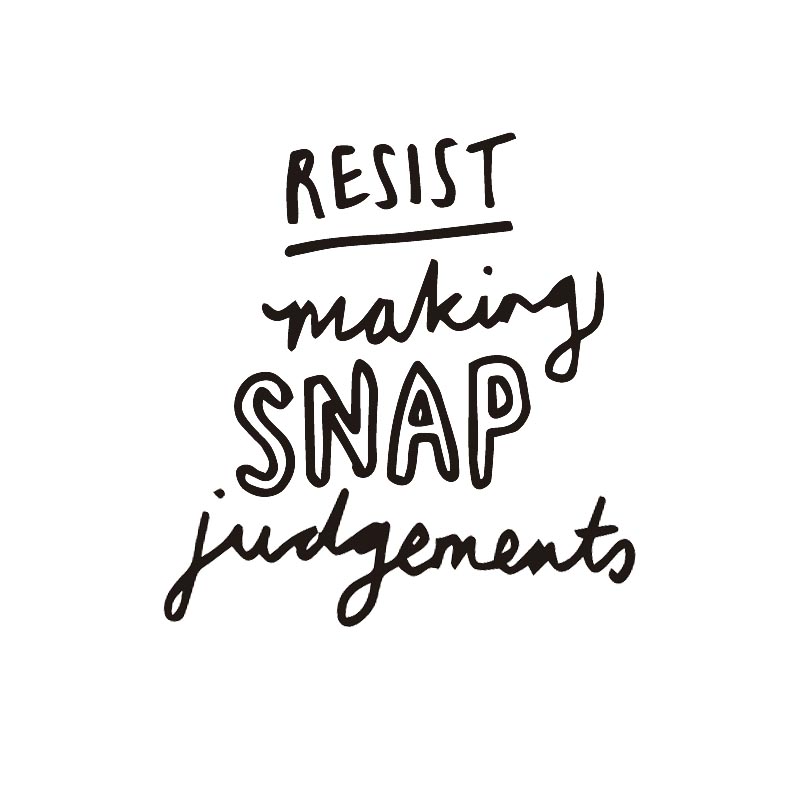Take a minute and go through the following list. Try to think of at least one person from each category that you really dislike, can’t stand, or find really annoying:
- Musician or band
- Reality TV star
- Television (or radio) personality, actor/actress
- Politician
- Youtube celebrity or someone who’s famous for no reason
Imagine you are out of work and quickly running out of money. The phone rings – it’s a job offer! The pay is good, it would fit your skillset perfectly, and you could start right away. The catch: It’s working on a project for someone on your list above. Could you set your own views aside, or would you say no to the job?
Judgment comes naturally with entertainment. We hear new music and decide if it’s good or bad. We watch a movie and love it or hate it. On the job, though, we have to detach from those opinions to do the best work we can. I learned this with a big milestone in my career (mixing my first television series).
It took a few years to build up from making coffee and picking up lunches to engineering sessions and mixing. When I finally landed a series, it was a genre I don’t watch a medical show. I’m squeamish about blood and to this day can’t watch real medical shows or horror movies. So, I was trying to do my best work while on-screen was a graphic plastic surgery with nothing blurred out. (In tv/film mixing, you usually get “offline picture,” which means there are no visual effects yet like blurs.) I spent days mixing while watching the surgeries out of the corner of my eye – just enough to make sure the dialog was in sync.
I could have said no to the show, and there are times where it’s absolutely appropriate to pass on something because of the content. In that case, it was more important to put aside personal preferences, and it was worth it for the experience, credit, and client relationship.
Judgment isn’t just about putting aside our own views. Sometimes we have to put aside what the audience thinks, too. Another milestone in my career was mixing a primetime show for a major television network. It was a reality show that had millions of viewers every week, so a huge step up from the obscure cable shows I had worked on. It was a great experience – I learned a ton and met a lot of really cool and talented people on the crew.
In the hiatus between seasons, I went to visit my parents in Colorado. My mom introduced me to a new neighbor, proudly sharing that I worked on this popular show. The neighbor responded, “Didn’t your mom say you have a Masters Degree? Why are you working on that?!” It was a huge realization: The audience has no idea what’s happening behind the scenes or why we choose the jobs we do. All they may understand is their judgment or feelings about the end product. In entertainment, we work hard knowing that some people will like it and others won’t, but it’s still our time and energy put into that work. Chances are, we don’t like everything that we work on, but it’s more important to survive.
This judgment happens at all levels of the field, too. When the movie “Interstellar” came out in 2014, there was a lot of controversy about the dialog being too quiet and unintelligible at times. One theater even put a sign out explaining that there was nothing wrong with their sound
system.
Movie Theater Blames Christopher Nolan
Some audience and critics were pointing fingers at the mixers, who are top guys with multiple Oscar wins. Director Christopher Nolan later came to their defense saying that the mix choices were deliberate. He had creative reasons to do it, and it’s the mixers’ job to help achieve that vision.
Regardless of what the audience thinks (or the challenges you face on the job), your name is still attached to that work. Can you imagine if we could add these kinds of comments in the credits or liner notes?
- We didn’t get enough time to work on this
- The director wanted to get “creative”
- The artist did most of the work themselves and they hired me to clean up the mess
Or on a ticket stub:
- This venue has broken gear
- The band didn’t show up for soundcheck
- Yes, we know the guitarist plays too loud
It’s natural to analyze the end product, but we can do it in a way that’s respectful. For example, there’s a difference between saying, “I hate Justin Bieber” and “His album production is great, but I don’t care for how he presents himself.” Instead of saying, “That movie was a waste of time!” you could say, “The sound and visual effects were awesome, but I didn’t find the story interesting.” Instead of judging a mixer for unpolished work, why not ask, “What might have happened that caused the sound to be like that?”
Part of working in entertainment is learning to accept your circumstances (good or bad) and still do the best work that you can. At the end of the day, we’re all in this to make a living so that we can get another opportunity, grow our skills, and get another gig. So, the next time someone says they’re working with an obnoxious celebrity or on a questionable reality show, remember to say, “Congratulations!” You’ll make a lot more friends that way, and you never know who might be your boss someday.
